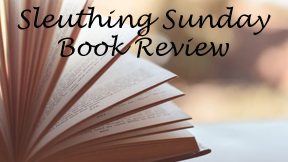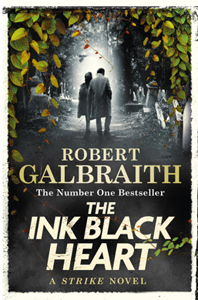In her sixth Cormoran Strike novel, “The Ink Black Heart” (2022), J.K. Rowling (writing as Robert Galbraith) goes deep into the modern world of social-media communications. The title refers to a no-budget YouTube series made on a whim by a couple of young people that ends up being hugely popular – like “South Park” but about 15 years later.
Story within a story
This novel is set in 2015, when “IBH” has drawn a massive following and the interest of Netflix. Similar to how Gabrille Zevin creates a fictional smash-hit game for the sake of exploring its creators in “Tomorrow, Tomorrow, and Tomorrow” (2022), Rowling establishes that “IBH” has spun off into an online interactive fan-made adventure called “Drek’s Game.”
The ability to create a believable fictional franchise as a background for the story you want to tell (see also 2000’s “The Amazing Adventures of Kavalier and Clay”) is an unsung literary skill. The author is building two worlds for the sake of one rich tale.

“The Ink Black Heart” (2022)
Author: J.K. Rowling (writing as Robert Galbraith)
Series: Cormoran Strike No. 6
Genre: Mystery
Setting: England, 2015
The novel includes brief explorations of copyright law, fan-driven properties and the corporatization of franchises (as seen in the past decade with “Star Wars” and many others, but – interestingly – not so much the Wizarding World, which Rowling still oversees). But the main takeaway of this novel is the vile nature of the dregs of internet socializing.
Strike and Robin initially reject the case brought to them by Edie Ledwell, co-creator of “IBH.” She wants to know the real-world identity of Anomie, the creator of “Drek’s Game.” That fan has turned on her and has been harassing her online. The detectives say they don’t do tech-based investigations.
When Edie is viciously murdered, though, her uncle hires Strike and Robin, and they realize they can do a lot even without knowing the ins and outs of computer tech and game coding. They simply have to turn their probing and in-person interviewing skills to a different arena.
Another cold one
“IBH” is the coldest Strike novel so far, surpassing even the third entry, “Career of Evil,” a mystery in which one of three completely awful human beings is the serial killer. At least those suspects had a certain honesty to their evil.
Robin signs up for “Drek’s Game” in order to learn more, and she and the reader are thrust into a world of anonymity; the lead moderator’s name being Anomie is surely no accident by Rowling. Although the novel passes the 1,000-page mark, that’s misleading because many pages feature quickly digestible “screenshots” of in-game chats and Twitter exchanges.

Hiding behind anonymity, the discourse is of the type that we’ve all seen before – and if we’re smart, have disengaged from. It makes us wonder if the people doing the typing would act that way in the real world. There’s a certain comfort in saying “Obviously, they would not.” But “IBH” is ultimately a deep dive into how faceless social media exchanges can make cruel people crueler, and can truly effect the lives of good people – especially if online attacks are expertly coordinated.
As with all the Strike novels, “IBH” has a huge and diverse roster of well-drawn suspects and victims. And again Rowling effectively uses phonetic spellings in the quotes, particularly to illustrate how a bedraggled, simple-minded teen girl has been thoroughly manipulated by “Drek’s Game.”
The folks chatting in the game – and on Twitter – might be who they say they are, they might not be, they might be a duplicate account (one person posing as many different people), and they might even be a fictional creation.
Transformational characters
With some awkwardness, Rowling makes sure to keep us off-balance about Anomie’s gender. They’re generally referred to as male, but some other moderators and gamers believe Anomie is female. Robin and Strike often say “they” rather than “he or she” in conversations about Anomie. This reflects accepted, smoother-flowing speaking style but also makes us think of the new language trend wherein some transgender people prefer being referred to as “they”/“them.”
Further enriching the topic is the fact that Rowling has been criticized for her belief that there are only two genders; some trans people believe that marginalizes them. The debate continues, even in an age when it seems the most heated of the equal rights debates on the grounds of race, gender and sexual orientation are in the past.
Probably for the better, Rowling doesn’t write anything notably controversial about trans folks in “IBH,” as Strike and Robin always (as good detectives must) judge people on the content of their character. The sleuths never express a view that trans people are lesser, although it should be noted that the trans angle is peripheral – reflecting how people represent their online personas, not their existence in the physical, tangible world.
At the same time, “IBH” doesn’t strike me as a cautious novel. Rowling paints a stark portrait of interpersonal communication in the early 21st century, and the way the villains use anonymity to their advantage (but also how Strike and Robin use the wealth of internet information to crack that anonymity). And it’s not a nice portrait.
However, maybe I’ll look back at “The Ink Black Heart” nostalgically in a decade or so. At least in 2015 (and today, barely), we had the ability to be somewhat anonymous and private.
Sleuthing Sunday reviews the works of Agatha Christie, along with other new and old classics of the mystery genre.

